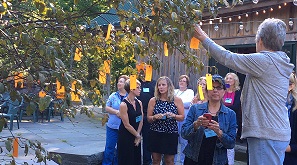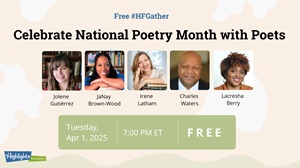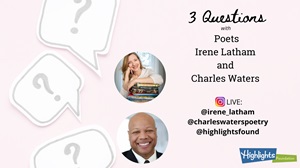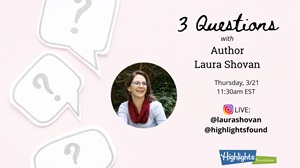Bly describes metaphor and simile as “forgotten relationships.” I think a peacock is like a rainbow umbrella written by a fifth-grade student confirms Bly’s idea: a fanned peacock feather and an open umbrella greet each other like long lost friends. Metaphor and simile astonish and surprise, and their power lies in the sudden and unexpected connection of two seemingly unlike things uniting in ways that we’ve never before thought of. We don’t need a footnote explaining that a peacock’s colorful plumage resembles an open umbrella. We instantly get it. Poof! And in that sudden revelation lies the pleasure and magic of metaphor, and of poetry.
In Shel Silverstein’s poem “Somebody Has To” he wrote that “Somebody has to go polish the stars…” Metaphor is that polishing cloth. It polishes the film of familiarity off of the things of this world; things that we sometimes take for granted because we see them daily. So a poet’s job is to bring back the shine of the world, whether seeing stained glass windows in dragonfly wings or describing jacks as “tin bouquets” or “bundles of piggyback stars.”
The problem with some metaphors and similes is that they are overused and therefore they’ve lost their pizzazz. “As brave as a lion” and “my love is like a red, red rose” might have felt fresh and surprising the first time we read them but eventually these similes dulled. One of the pleasures of poetry is surprise; a connection so unexpected it takes our breath away.
Metaphors linger. They can change the way we see the world forever. You might be walking along the shore and hear Moore’s “the sea breathes in and out upon a shore,” or you may be eating a corn on the cob and imagine it’s teeth are falling out, like one first-grade poet did.
When we seek out metaphor’s forgotten relationships the world becomes a more imaginative place chock-full of joy and awe, and the everyday is transformed into poetry.
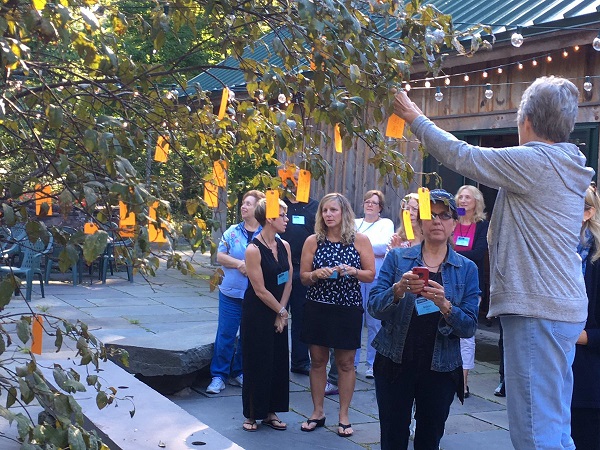
.

